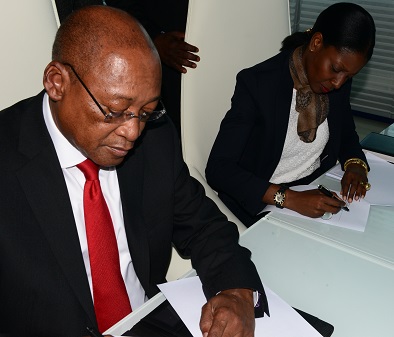
Ghana International Bank to reach out to under privileged persons
Ghana International Bank (GHIB) has reiterated its committment to use its Corporate Social Responsibility (CSR) programmes to support its developing partners in the country to help alleviate poverty and improve healthcare delivery and education.
The Ghanaian-owned international bank based in London makes annual donation of one per cent from its pre-tax profit through the Ghana International Foundation (GHIF) to a number of developing partners including non-governmental organisations, vocational and technical training institutes and medical centres who reach out to the less privileged in society.
Speaking at a forum with some of its developing partners in Accra, the Chief Executive Officer (CEO) of the Bank, Mr Joseph Mensah said the bank had sponsored the discretionary charitable trust; GHIF, in a wide range of well-managed development programmes and capital projects in areas of health, education and poverty alleviation.
He said the forum had shown how Ghanaians had through voluntary actions taken control and responsibilities in addressing some of the issues that confront young people, especially, in the country.
“There is this element of self-reliance, community activism in Ghanaians that the GHIB is interested in supporting, therefore seeing the partners here today testifies to the fact that volunteerism is alive and well in Ghana”, he said.
He indicated that the bank had distributed over US$500,000 to organisations and institutions through the foundation since its establishment and added that the bank was going to sustain and improve the sponsorship to their partners.
“Since the establishment of the foundation in 2000, the bank has sponsored communities in the northern Ghana by enrolling over 6000 young girls in school and providing hands on vocational training as well”, he said.
Some of the recent projects the bank, through the GHIF has undertaken include the purchase of training equipment for the St Mary’s Vocational Institute at Asamankese, construction of classroom blocks and provision of logistics to Care 4 Humanity, a non-governmental organisation into education and vocational training at Adorso and drilling of boreholes in some deprived communities across the country.
Also, the bank through the foundation, has supported the Theatre for Change, a women advocacy group that identifies young girls who were trafficked and sexually exploited with vocational training, education and mentorship.
The various development partners that have benefited from their support commended them and asked that the bank continued to support them to reach out to the poor in rural communities.